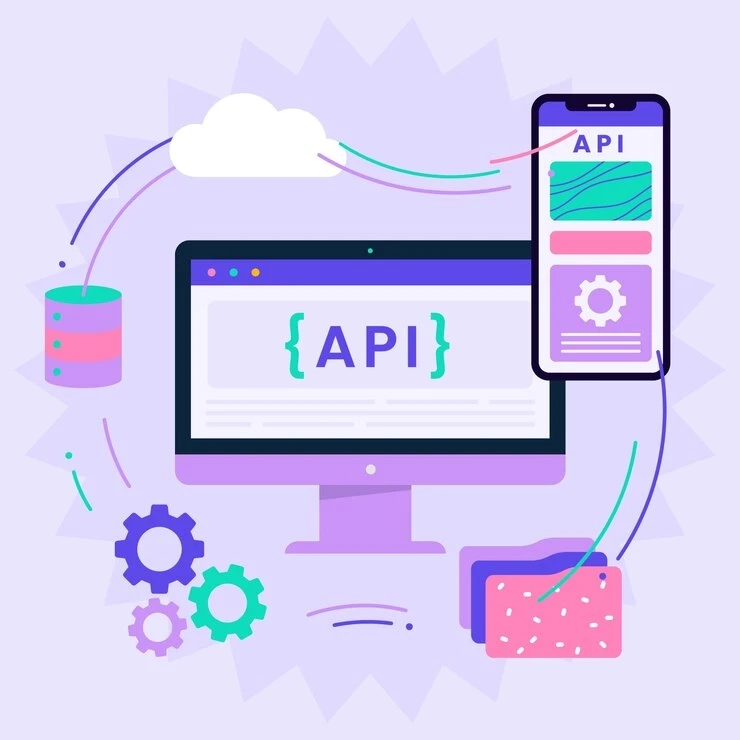Understanding the geographical context of users and devices is crucial for businesses and security professionals. IP location APIs have emerged as powerful tools that provide valuable insights by mapping IP addresses to their physical locations. This blog explores how these APIs work, their benefits, and their practical applications.
What is an IP Location API?
An IP location API is a service that provides data on the geographical location of a device based on its IP address. When a user connects to the internet, their device is assigned a unique IP address. This address can be used to infer the device's location, although it may not be pinpoint accurate. An API get location from IP helps translate this IP address into location data such as city, region, country, and sometimes even latitude and longitude.
How Do IP Location APIs Work?
API get IP location services operate by querying a database of IP address ranges and their associated geographical locations. When you send a request to an API IP location, the service matches the IP address against its database and returns the corresponding location data.
Here’s a simplified breakdown of the process:
Request Initiation: The API request is initiated with an IP address as input.Database Lookup: The API queries its internal database to find the location associated with the provided IP address.Response Generation: The API returns a response containing the location data, which might include country, city, region, and latitude/longitude.Types of IP Location APIs
There are various types of IP location APIs, each offering different levels of detail and accuracy. Some common types include:
Basic IP Location API: Provides general information such as country and city.Detailed Geo IP Location API: Offers more granular data, including latitude, longitude, ISP information, and even the type of device used.Real-Time IP to Location API: Focuses on providing up-to-date location data with minimal latency.Benefits of Using IP Location APIs
Enhanced User Experience: By leveraging an API to find location of IP address, businesses can tailor content and services to the user's geographic location. For example, e-commerce websites can display localized offers or content based on the user's location.
Improved Security: Security systems can use IP location data to detect suspicious activities. For instance, if a login attempt is made from an unusual location, it can trigger additional security measures or alerts.
Geotargeted Advertising: Marketers can use get IP address location API services to deliver location-specific advertisements and promotions, improving the relevance and effectiveness of their campaigns.
Fraud Prevention: Financial institutions and online retailers use geo IP location API services to detect and prevent fraudulent transactions by analyzing the geographic consistency of login and payment attempts.
Regulatory Compliance: Certain regulations require businesses to provide specific content based on a user's location. IP location APIs ensure compliance by verifying the geographic origin of users.
Practical Applications of IP Location APIs
API IP to Location services are widely used across various industries:
Retail and E-commerce: Localize product offerings, promotions, and pricing based on the user’s location.Travel and Hospitality: Offer location-based recommendations and services, such as nearby attractions or accommodations.Finance and Banking: Monitor for unusual activities and ensure transactions are legitimate by checking the user’s location.Content Delivery: Optimize content delivery networks (CDNs) to ensure fast and reliable content access by routing data through geographically appropriate servers.Choosing the Right IP Location API
When selecting an API get location from IP, consider the following factors:
Accuracy: Ensure the API provides accurate and up-to-date location data.Coverage: Verify that the API has extensive global coverage, including less common regions.Performance: Choose an API with low latency and high reliability to avoid delays in obtaining location data.Cost: Evaluate pricing models to find an API that fits your budget and usage requirements.Conclusion
IP location APIs are indispensable tools for modern digital applications. They provide valuable insights into the geographical context of users and devices, enabling businesses to enhance user experiences, improve security, and optimize marketing efforts. By understanding how these APIs work and their benefits, you can make informed decisions about integrating them into your systems to leverage their full potential.
FAQs
1. What is an IP Location API?
An IP Location API is a service that provides geographical information about a device based on its IP address.
2. How does an IP Location API work?
It queries a database of IP address ranges and their associated locations, returning data such as city, region, and country.
3. What types of data can an IP Location API provide?
An IP Location API can provide data including country, city, region, latitude, longitude, and sometimes ISP information.
4. Why is an IP Location API important for businesses?
It helps businesses tailor content, improve security, optimize marketing, and ensure regulatory compliance by providing location-based insights.
5. How do I choose the right IP Location API?
Consider factors such as accuracy, coverage, performance, and cost when selecting an IP Location API.


